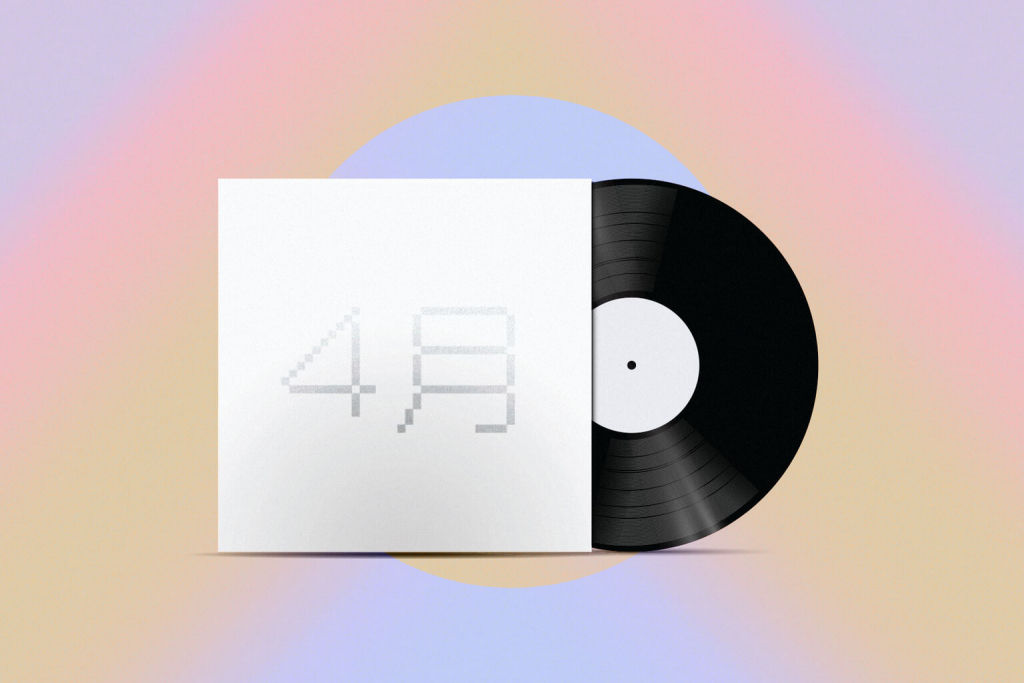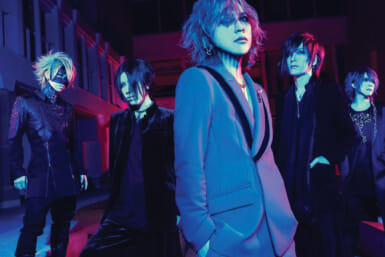We’re bringing back our monthly music roundups showcasing the best new songs and albums from Japan.
Our review of albums in April includes the likes of Eiko Ishibashi, who wrote the accomplished soundtrack to the recent hit movie Drive My Car; Awich, the rapper putting Okinawa on the map; and the multi-instrumentalist, Masahiro Takahashi.
Taro Nohara – Hyper Nu Age Tekno!
Taro Nohara burst onto the scene in 2009 through his rap project, Yakenohara. Since then, he’s had a pretty varied ride. After performing with his rap project at Fuji Rock Festival and extensively touring Japan supporting the likes of Thundercat and Giorgio Moroder, he was asked to remix the legendary label Stone Throw Record’s 15th Anniversary album. He followed this up by releasing records for the LA-based label, Not Not Fun, as part of the Unknown Me outfit.
Hyper Nu Age Tekno sees him take an altogether different approach from the rap he made his name through, mixing subtle ambient melodies alongside shimmering modular pads.
The first track “Space Debris” really does conjure up space debris vibes, if space were compact. The song concludes nicely with popping synths and a consistent drumbeat towards the end. “Airplane Without People” isn’t quite as eerie as the name may suggest, with squelchy acid and playful vocaloid samples. “Music for Physical Liberation” is the most downtempo of the album, melancholic before the closing title track sweeps everything to a close in a whir of hardware sounds.
Masahiro Takahashi – Flowering Tree, Distant Moon
This is meditative ambient music from the Toronto-based producer that was originally released on cassette only. It sold out quickly and patrons clamored for an accessible release format. Here it is.
Out on digital and vinyl, Masahiro Takahashi brings to mind the great Japanese ambient pioneers such as Hiroshi Yoshimura and Susumu Yokota, through his manipulation of the Indian shruti box, alongside analog electronics.
The album opens with “Torch Dance,” which is an absorbing ambient landscape. It’s easy to imagine the track lighting the way on a dark country road. “Spring at Home” is a twinkling, moog trip, a bright flurry of cosmic sounds that bring to mind a Claude Larson track. The subdued tunage of “Frog Into The Pond” slows the mood down.
‘Touji’ is the track most like Yoshimura’s ambiance back in the day. It’s a minimal piece, with ethereal, fairy-like tones. “Yellow Sunset,” is contemplative, reminiscent of watching the light fade from the sky as the sun heads down, ready for the night. “Endless Thought” is a homage to the old moog masters and the most dramatic track on the album.
The record closes with “Pray,” a subtle final track of landscapes and pretty pictures with melancholic undertones. It’s great this finally saw a release so everyone can enjoy it.
Eiko Ishibashi – Drive My Car Soundtrack
Eiko Ishibashi’s soundtrack to Japanese director Ryusuke Hamaguchi’s highly acclaimed picture Drive My Car is just as worthy of praise as the movie itself.
The title track sees wonderfully soft jazz drums reminiscent of a Keith Jarrett or other ECM favorites, welcoming in a beautifully arranged orchestral piece.
One of the great things about this album is that each track sees variations by the character or part of the movie. So, the song “We’ll live through the long, long days, and through the long nights,” also has an ‘Oto’ character version and a SAAB 900 version (yes, that is the car). Rather than a barely distinguishable rehash of the original, each is carefully considered. The original track is a complex jazz affair, Hatano’s violin complemented by delicate drums and Ishibashi tinkling the keys. The SAAB edit is fittingly more mechanical, with a collage of sound effects from the movie and using more electronics than the original.
The closing track does away with the percussion which buoys the rest of the album in favor of a calming ambiance, much like the ending of the movie itself. A well-thought-out album from a music veteran with expert manipulation and composition of instruments, both acoustic and electronic.
Yuga – Wordless Nights
More dreamy indie-pop from Tokyo-based singer-songwriter, Yuga, with her third album and first since 2018’s Mahou. Wordless Nights sees her stay true to her tried-and-tested formula with wistful vocals and soft melodies.
With a rich, muted vocal Yuga rightly puts her voice center-stage. On songs such as the opening “Past,” instruments are kept to the minimum, with stripped back vocals and raw guitar for the majority, plumped with twinkling keys and soft snares.
“Fifteen” is perhaps the most classic indie song on the album, with an electric guitar and prominent drums bringing to mind an older Black Keys track. Contrary to its title, Yuga’s third album features many words through soothing vocals, perfect for wordless summer nights.
Awich – Queendom
Awich released her latest full length back in March but we think it’s definitely worth a mention in this column, especially due to the high-production videos she released. Produced by Yentown head honcho, Chaki Zulu, it’s an addictive mix of US-influenced beats and engaging lyrics in both Japanese and English.
From the head-bobbing lyrics on “Dore Ni Shiyoukana,” the positive message on “Link Up” through to the bold explicitly of “Kuchi Ni Dashite,” Awich has outdone herself.









